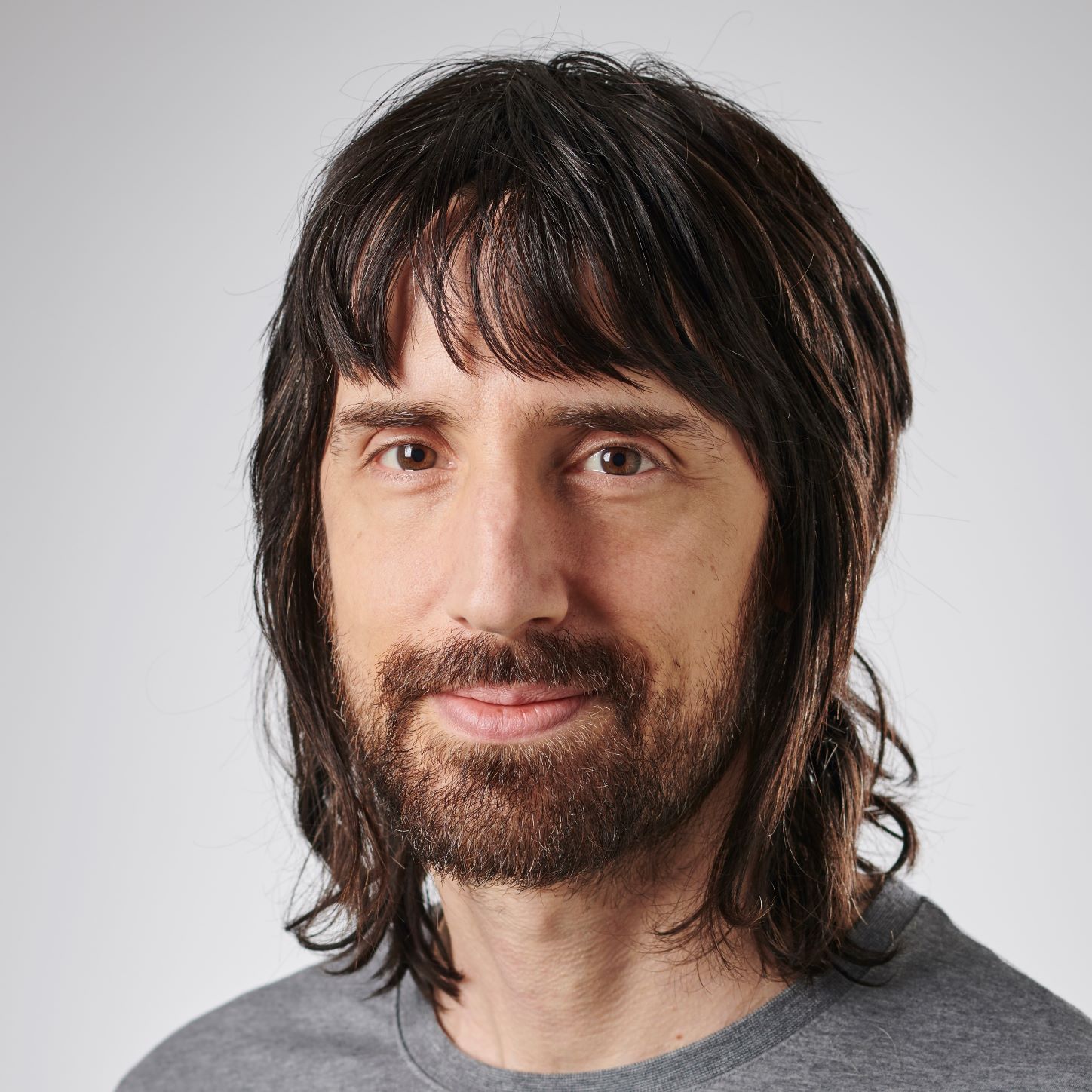Classic interview with Wilko Johnson and Norman Watt-Roy: “We were packing places out because we were so different from whatever else was happening”
An audience with the rhythm kings from 2018: Dr Feelgood's guitar and bass mavericks on their musical relationship, history and iconic gear
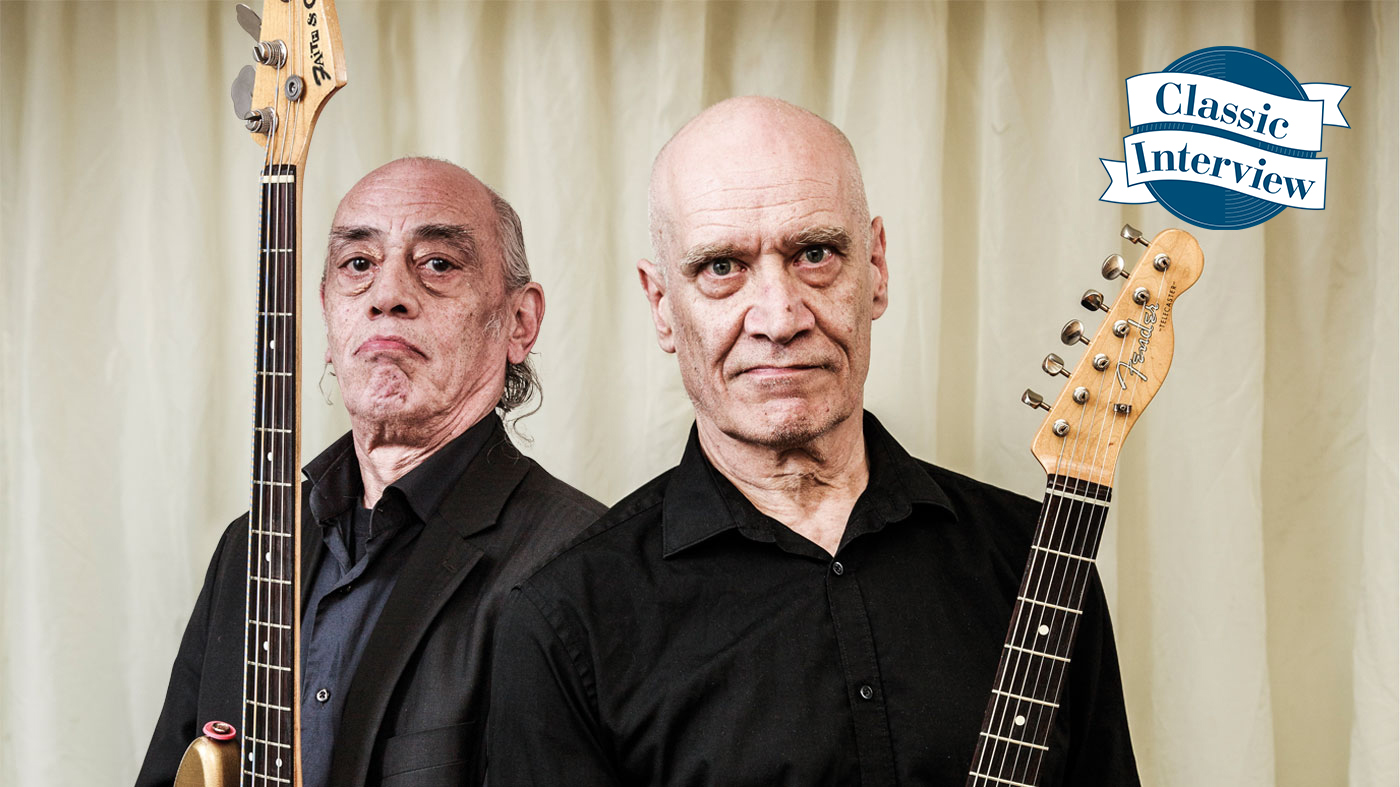
In tribute to Wilko Johnson we're revisiting this 2018 interview with him and peer, friend and fellow British rock hero, Norman Watt Roy.
Straight-talking, straight-playing Dr Feelgood guitarist Wilko Johnson is a true rock ’n’ roll survivor. Here, with Blockheads bassist, Norman Watt-Roy, he talks through us some memorable moments...
Wilko Johnson rose to notoriety in the 1970s as a founding member of the maverick, back-to-basics rock ’n’ roll band Dr Feelgood - his trademark no-nonsense guitar chops shooting straight from the hip in contrast to a soon-outdated backdrop of musical grandiosity. Having left the band in 1977, he went on to form Solid Senders, before joining The Blockheads a few years later.
Meanwhile, in between carving out his own style as a session player for Roger Daltrey, The Clash and Madness, long-serving Blockheads bassist Norman Watt-Roy began a musical partnership with Wilko, which has – against the odds – survived to this day, as the pair have now been touring and recording together for more than 30 years.
With a new album currently in progress and extensive touring undertaken, including a date at the Royal Albert Hall, the Wilko Johnson Band three-piece, also comprising drummer Dylan Howe (son of guitarist Steve Howe), show no signs of slowing down.
While retreating to their tour van for a few quiet moments, Wilko and Norman join Guitarist at the annual Rock Against Cancer concert in All Cannings, Wiltshire to discuss the highs and lows of their decades-long journey.
You guys have been working together for a long time now - how did it all start?
Get the MusicRadar Newsletter
Want all the hottest music and gear news, reviews, deals, features and more, direct to your inbox? Sign up here.
I remember seeing a live Blockheads show on the telly and the next day going, ‘Did you see the fuckin’ bass player?!’
Wilko: “What happened first was I bumped into Ian [Dury] and told him I was a bit down in the dumps. I was thinking of quitting and he said, ‘Listen, The Blockheads are down the studio at the minute - do you wanna come along and make a single with them?’ And I went, ‘Wow!’ because I was a raving fan of Norman, but I didn’t know him, right? I just remember seeing a live Blockheads show on the telly and I remember the next day going, ‘Did you see Ian Dury? Did you see the fuckin’ bass player?!’ And so I was really, really excited and I thought ‘Yeah, I’d like to go down just for that!’ So I went down and they asked me to join the band. Me and Norm were just mates straight away, weren’t we, Norm?”
Norman: “Yeah, we’re good mates, we always got on well. He toured with us for about two and a half years. And all the time Wilko was touring with The Blockheads - we did Australia, all over Europe and England - he had his band, Solid Senders and they were still going at the time, too. He’d come off a Blockhead tour and go straight on the road with his band! And I used to love it. I thought, ‘He’s got it, man - he just keeps working!’”
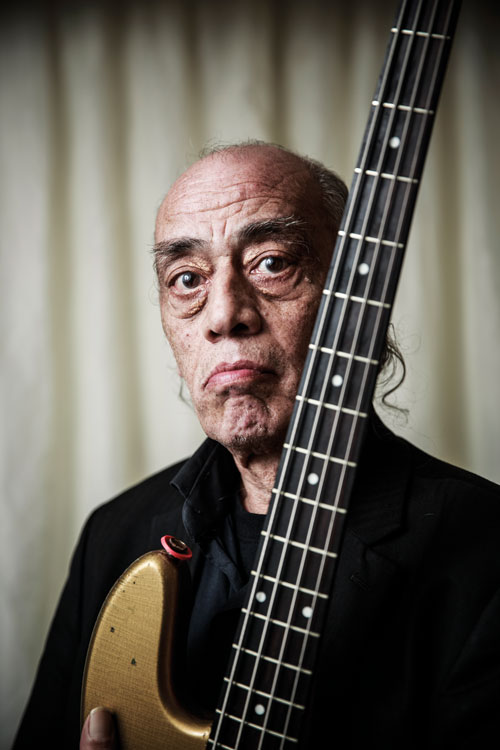
Wilko: “Well, [Solid Senders] had got to another point later where I just thought, ‘Maybe it’s time to leave it.’ I had four gigs left with them, I think, and my bass player went off and joined Eddie & The Hot Rods [laughs]. I thought, ‘The humiliation is complete now.’ So I had just these few gigs left and I hadn’t seen Norm for a couple of years, but I decided to phone him up and said, ‘Can you fill in with us for four gigs?’, which he did and we just never stopped since then.”
Norman: “It went so well. The very first gig we ever did was at The Half Moon in Putney, which is still going - great gig. I remember Wilk said, ‘Look, we don’t need to rehearse - just start and then you follow me,’ and I went ‘Okay!’ And that’s what we did. It was fucking great [laughs]! It was really good. It’s just kind of progressed and now it’s over 30 years on the road together. It’s brilliant. And The Blockheads are celebrating their 40th anniversary tour this year!”
Style and feel
You’re both well known for having instantly recognisable styles - how did that develop?
Norman: “I know people say I’ve got a style and all this, but I don’t think you kind of realise you’ve got a style, do you? To me, I’m just doing what I’ve always done and trying to do it better all the time.”
Wilko: “Actually, it is kinda different - I gotta say that. It might feel natural to you, but I’ve played with a few bass players and it is different.”
Norman: “I don’t know… It’s the freedom I love, playing with Wilks. He just plays what he does and then I can do whatever I want. I love it! And then I lock in with Dylan, because he’s a great drummer. I worked with him in The Blockheads and with Wilks… We never talk about it! We’ve never really talked about it!”
Wilko: “Really, we don’t rehearse, man. I mean, it’s just so simple, y’know?”
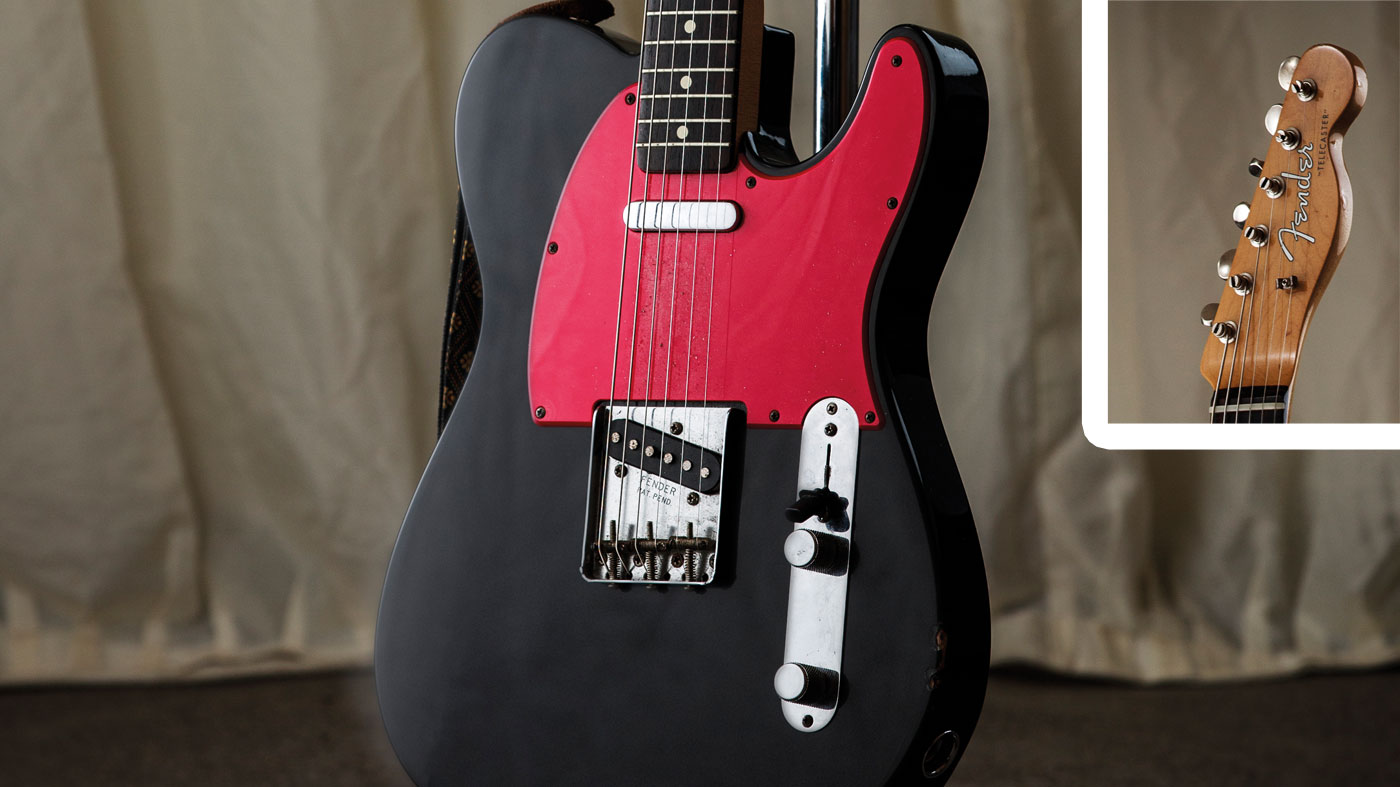
Luthier Joe Dobson of Joseph Kaye guitars explains the recreation Wilko’s famous black-and-red 1962 Tele
“I’d started up my own guitar workshop and I was doing merchandise for Wilko. He came up to me one day and said, ‘How much for a guitar?’ and we agreed a price, so he came into the workshop and tried out a few things I had. His original ’62 Telecaster has a big chunky neck with a wider nut and a two-piece diagonal body join, which is really rare. I made his guitar without seeing it first and the strange thing was, I actually made a chunky neck with exactly the same width! But the weirdest thing was that I picked a two-piece body with a diagonal join rather than a one-piece that I had! By default, I managed to make him an identical guitar to his original without realising it. When he picked it up he instantly went, ‘This is the one!’”
Dr Feelgood appeared to have a similar, basic approach - how did that come together initially?
Wilko: “I happened to bump into [Dr Feelgood vocalist] Lee Brilleaux out on the street one day and we started talking. He had a band that wanted a guitarist and I thought, ‘I’ve got a guitar,’ so we went and put this band together and called it Dr Feelgood. It was purely, absolutely for fun. I mean, I was an [English] schoolteacher at that time and Lee was a solicitor’s clerk, Sparko was a bricklayer and The Figure was an ice cream man!
“We kind of got the thing together that we were doing, although it wasn’t very fashionable then. This was the early 70s and big production music was very popular, but we didn’t have any of that. It was so basic, but we instantly caught on and were packing the places out because we were just so different from whatever else was happening - we were so violent and silly.”
Norman: “Dr Feelgood were just like these four hit-men! I mean, this was all mid-70s - it was pre-punk. You knew a lot of the young guys before they were punks, didn’t you? They were all watching Dr Feelgood, because it was no-bullshit rock ’n’ roll. Everyone else was doing all this mega-production stuff and it had all gone over the top with that, whereas they were just getting on and doing basic shit. And I think they liked that.”
Wilko: “In 1976, [Dr Feelgood] was succeeding and touring quite a lot of the time, but the whole punk thing developed when [Dr Feelgood] were touring America. When I got back from touring, I eventually got chucked out of the band and I was walking down Oxford Street one day and suddenly these three geezers came running up. One of them is Joe Strummer and he said, ‘You don’t know who I am, but I know who you are! What are you gonna do now?’ I said, ‘I know who you are, man - I’ve seen you in the paper.’ Quite quickly I started making friends with all of these different bands. They were all well into Dr Feelgood.”
Norman: “I ended up working with Joe. I did [The Clash] Sandinista! and Cut The Crap. And when he heard I was working with Wilks he went, ‘Whoa!’ I mean, he bought his guitar from Wilks. He called himself Strummer because of Wilks!”
Gear through the years
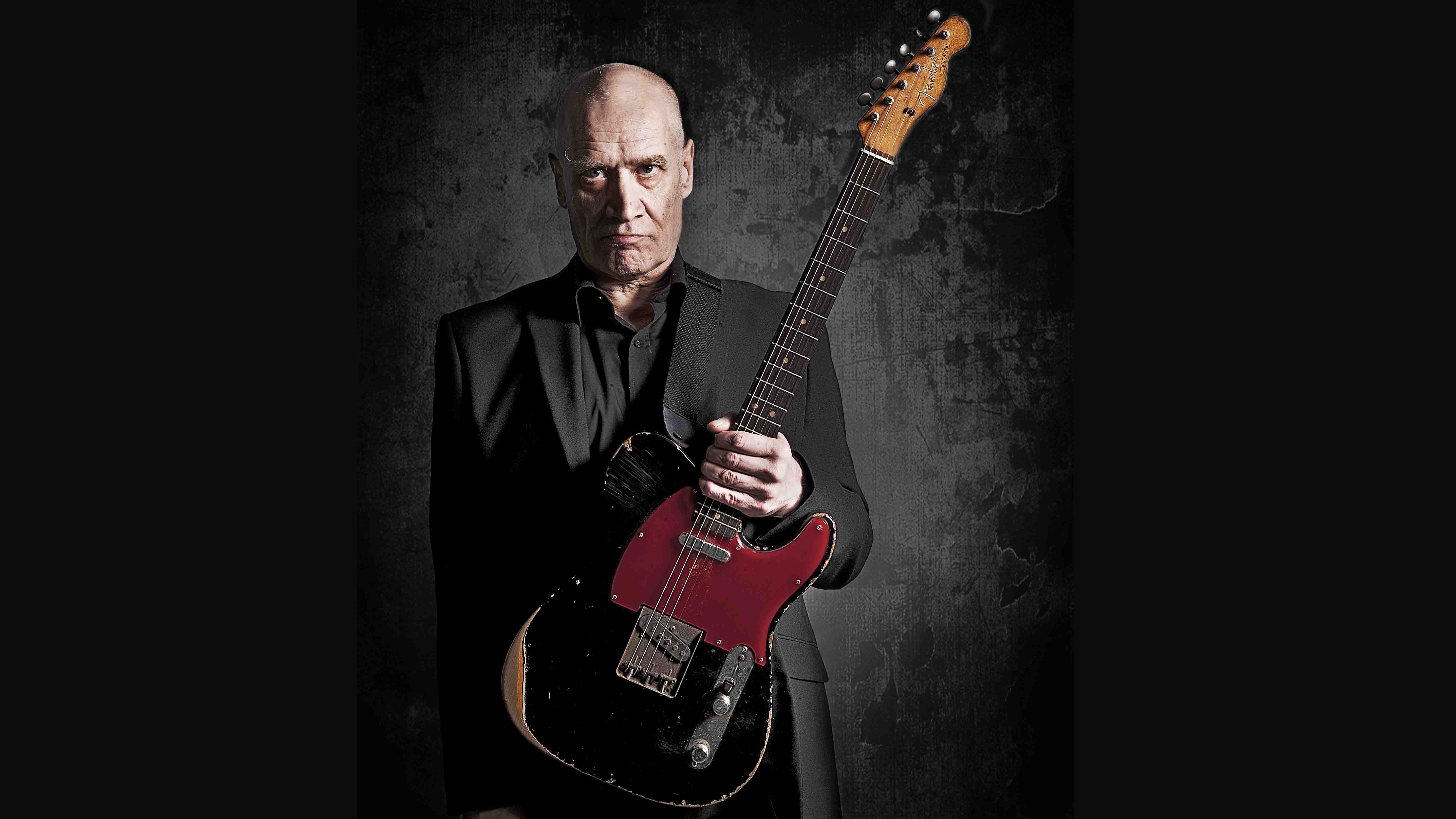
Wilko, what was the first guitar you bought?
Wilko: “The first guitar I got was a left-handed guitar for about 10 quid. I am left-handed, but then I got a chance to buy a secondhand Watkins Rapier for about 17 quid, which was right-handed, so I thought, ‘What I’m gonna do is learn to play right-handed and I’m gonna tell myself I’ve only just started, so I won’t feel such a twat.’ I learned to play with that thing in a way. Then I got into Mick Green [of The Pirates] and I just really wanted a Telecaster. There was this Telecaster in the Southend music shop window that was £107. I’m talking 1965. That was an enormous price then.
“I’d been using this guitar with Dr Feelgood and it got to the point where I thought, ‘I don’t wanna take this on the road any more - there’s too much sentimental value.’ So, I just said to the roadie, ‘Go and get me a pre-CBS Telecaster.’ An hour later he came back with a 1962 Telecaster and I just got it resprayed black. I had the idea of the red scratchplate because I used to wear a red-and-black shirt at the time - I was all anarchy then!”
What guitar are you using on stage at the moment?
Wilko: “I use the Fender Wilko Johnson Telecaster as my number-one live guitar. It was the first one ever made, I think. I love it. But I wanted an exact copy of the old [red-and- black 1962 Fender Telecaster] and Joe Dobson at Joseph Kaye Guitars made me one. I usually have it by the side of the stage as a backup, in case something happens. It’s so good! They’re nice, Teles, aren’t they? Just nuts and bolts. No mucking about.”
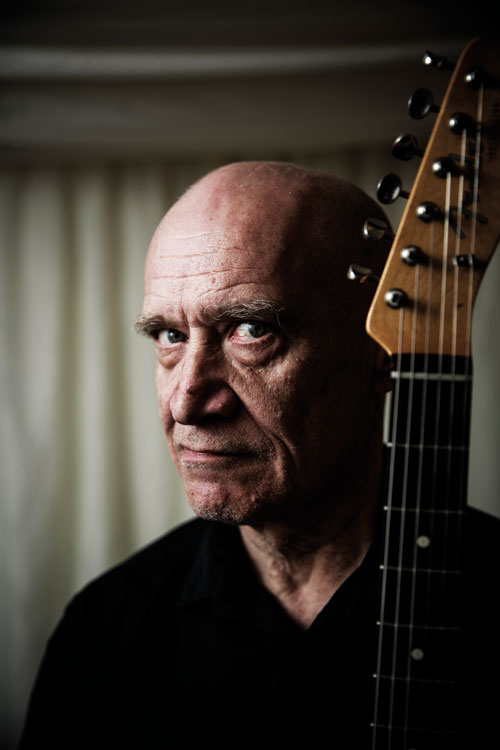
Norman: “Joe [Dobson] also made me a replica of my old 1962 Shoreline Gold Fender Jazz Bass and I’ve mainly been using that ever since. I love it - it’s really good. It’s got ‘Faith & Grace’ on the headstock - rhyming slang for bass. That’s what Ian [Dury] used to say to me, ‘Go get yer faith ’n’ grace!’ I was using the ’62 Jazz Bass up until then, but I sold it to Colin Greenwood of Radiohead. As a spare Jazz I have a [The Bass Centre] Blockhead Bass and I carry that around sometimes.”
Did you use a 1972 Fender Precision Bass previously with The Blockheads?
Norman: “Yeah, I used that P-Bass when I did Hit Me [With Your Rhythm Stick] and all The Blockheads stuff. The Bass Centre make two basses: they make a copy of my old Precision that they call the Rhythm Stick, and they make a copy of my old ’62 Jazz they call the Blockhead Bass.”
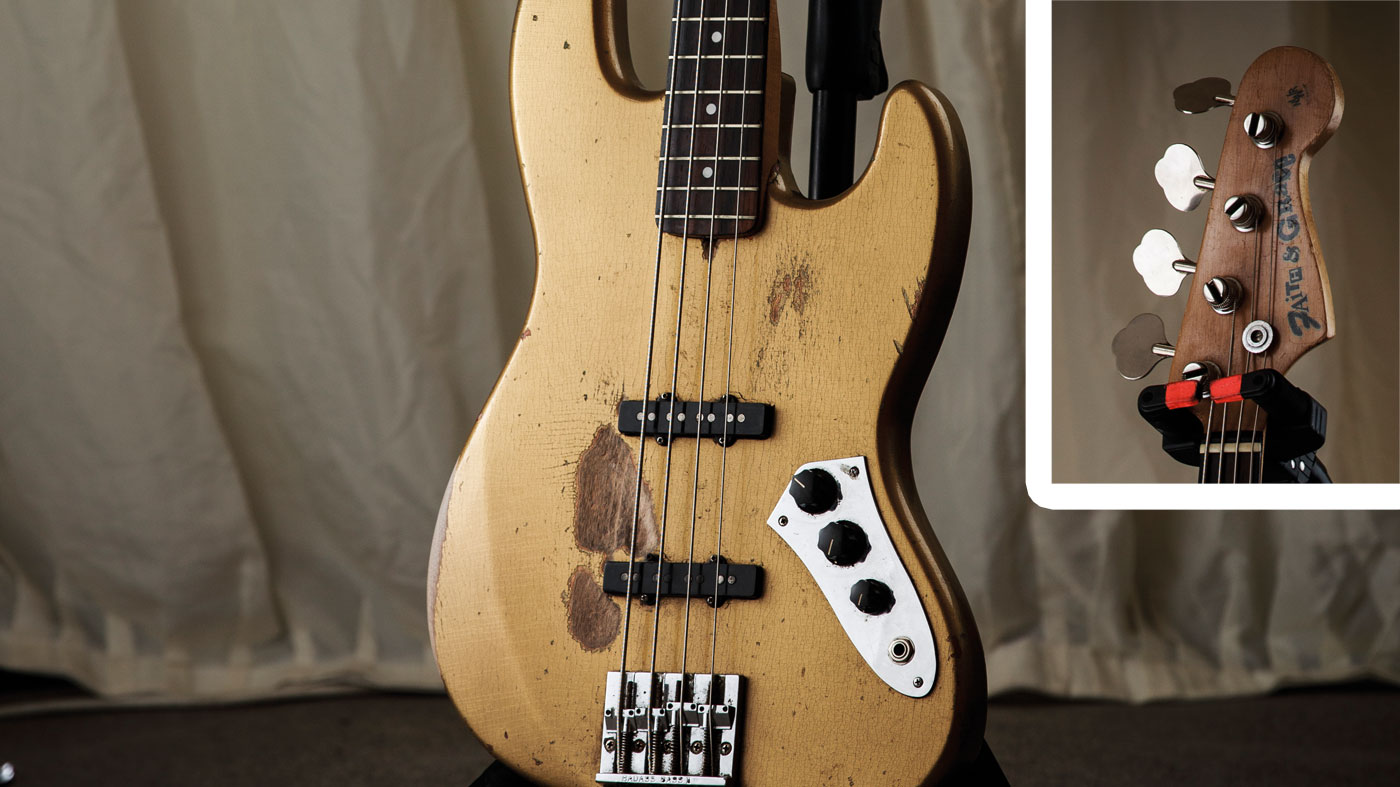
Is your setup as simple in the studio as it is on stage?
Wilko: “I’ve always liked to record as we would set up on stage. When we did the album with Roger Daltrey [Going Back Home], there wasn’t any overdubbing or fiddling about - very minimal.”
Extra time
You remained productive recording that album and touring, despite the cancer…
Wilko: “The album I did with Roger was the first part of my extra time! The first 10 months they’d given me had gone by and I was thinking, ‘Oh man, I’m gonna die, but I’ve had a good life.’ I didn’t think I was gonna see that album released - I just thought, ‘The end is coming soon.’ I mean, the tumour was big and I was ready to go.”
Tour manager, Dave ‘Lofty’ Lockhart, runs us through Wilko’s stage rig
“This is old-school, shoot-’em-dead rock ’n’ roll! It’s really important that it’s all old-school - the whole style and approach. The sound is really natural and his setup is so simple: no pedals, no tuner, straight into the Cornell amp, everything set to 12 o’clock, with a Shure KSM313/NE ribbon microphone for the front of house. I’ve just got to make it really loud and really palatable for people.
“Before we go out on tour, I’ll get the guitars set up. They won’t use tuners or anything when they get on stage and they’ll do an hour and a half usually, so I’ve got to try and make the things robust so they deliver for an hour and a half without going completely fucking south on you! They don’t even warm up before they go on stage - they just grab ’em and go!”
Norman: “After the op, he’s lying there and it’s a success and I told him, ‘Your album’s doing really well!’ He’s lying there with all these tubes in him…”
Wilko: “Yeah, so while it’s all happening and the album’s getting really successful, I’m just lying there all groggy, like ‘Oh… Good.’ [laughs]”
Talk about a comeback album!
Norman: “Coming back from the dead!”
Wilko: “It’s weird - when I was given a diagnosis I was calm. But in that moment the universe changes. It makes you see things differently. You start understanding what is important and what is not. I look back on it now and it seems like a dream. You wake up in the morning and it’s the first bloody thing you think: ‘I’m gonna die.’ And you freak out for a bit and then you get up. I couldn’t think, ‘How can anyone fight this?’ because you’ve got to, obviously.
“Emmanuel Huguet, the boss surgeon at Addenbrooke’s [Hospital], is the most impressive guy I’ve ever met. I knew he could do it - I had absolute faith in him. It was a massive 11-hour operation and they took out my pancreas, my spleen, half my stomach, some gut and a tumour that weighed 3.25kg that was the size of a melon! Oh man, it knocks you out - I got so thin! It took a long time to get back, but as soon as I was half-fit we did a benefit gig in Cambridge for the Addenbrooke’s Hospital and then gradually started going back on the road.”
What’s in the pipeline, musically?
Wilko: “We have started doing an album. I think it’s gonna be good. We’re quite excited about it.”
Norman: “Yeah, we’re in the middle of this new album - it’s sounding good at the moment. We’re going to Japan after that and we’ve got a lot going on with festivals in the summer.”
Wilko: “We just wanna get on and do it. No mucking about!”
Rod Brakes is a music journalist with an expertise in guitars. Having spent many years at the coalface as a guitar dealer and tech, Rod's more recent work as a writer covering artists, industry pros and gear includes contributions for leading publications and websites such as Guitarist, Total Guitar, Guitar World, Guitar Player and MusicRadar in addition to specialist music books, blogs and social media. He is also a lifelong musician.
“Every note counts and fits perfectly”: Kirk Hammett names his best Metallica solo – and no, it’s not One or Master Of Puppets
“I can write anything... Just tell me what you want. You want death metal in C? Okay, here it is. A little country and western? Reggae, blues, whatever”: Yngwie Malmsteen on classical epiphanies, modern art and why he embraces the cliff edge
